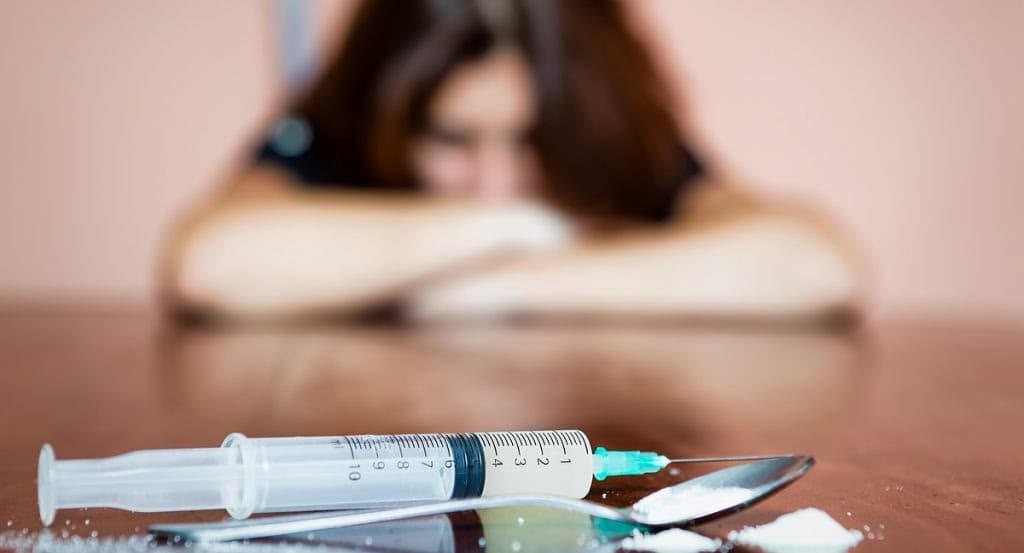Table of contents:
Cocaine is a stimulant made from coca plant leaves, and it's commonly offered as a white powder or as crystals or rocks created from it. A brief euphoric, energetic, and thrilling feeling is elicited by snorting, smoking, or injecting the substance, which lasts a few minutes to an hour, followed by an unpleasant comedown.
Although cocaine is still allowed for therapeutic purposes, its significant propensity for addiction restricts its use as an anesthetic, and it is now primarily used illicitly. The Drug Enforcement Administration classifies the substance as a Schedule II narcotic. If you need cocaine addict help, read on.

Side Effects From Cocaine Use
CThe brain releases dopamine, a chemical messenger or neurotransmitter, when people are exposed to anything that makes them happy, such as a nice dish, sexual encounters, or other pleasurable stimuli. Dopamine is subsequently recycled back into the cell, motivating people to repeat whatever activity or event caused their happy spike and strengthening their brain's inherent reward circuits.
Cocaine works around and interferes with this process by preventing dopamine from being reabsorbed. This causes a surge of the neurotransmitter in the brain, resulting in the intense "high" that users experience. Extreme lows may be felt as the substance departs the system in the form of a "crash." Appetite may rise, and weariness may set in, continuing the vicious cycle.
Summing up, we have the following:
Symptoms and Signs Of Cocaine Use
You can get your loved ones the cocaine therapy they need before addiction occurs if you recognize the signs of misuse.
The following are some of the most common indicators of abuse:
Consequences Of Using Cocaine
Because the brain has gotten acclimated to the more significant amounts induced by cocaine's interference, repeated use of the drug can actually lead the brain to cease producing as much dopamine on its own.
Dependence may develop at this time, leading a habitual cocaine abuser to feel irritated, sad, and worried without it and cravings for the substance. People may continue to misuse cocaine to self-regulate their pleasure and satisfaction and prevent withdrawal symptoms. This affects the brain's motivation and reward system. Addicts may believe that they require the substance to feel normal again.
Cocaine Treatment Options
Looking for more information? For those battling a cocaine addiction, there is variety when it comes to treatment for cocaine addictions. These can be provided in inpatient facilities, where the patient will be accommodated for the duration of their therapy. For someone wishing to recover from cocaine addiction, there are various therapeutic options and treatment venues accessible.
Medication-Assisted Treatment (MAT) For Cocaine Addiction
Pharmacological treatment of cocaine addiction? MAT was created to help people who were addicted to opioids and alcohol. Specific medications can be used to replace the addictive substance in the body, and the difference is that these medicines are much simpler to go off of. It wasn't long before people wondered if MAT might also be used to treat cocaine addiction.Unfortunately, there are no medications available for replacement treatment at this time. MAT is instead employed to address the root reasons for abuse. Medication can also help with withdrawal symptoms and prepare the body for recovery, including antidepressant treatment of cocaine addiction. Scientists are constantly researching new medications to combat addiction.
Behavioral Therapy Treatment For Cocaine Addiction
Behavioral therapies are psychosocial treatments that address the causes of a person's substance usage, as well as any underlying psychological difficulties.
Cognitive-Behavioral Therapy (CBT) was created to minimize relapse in the treatment of problem drinking, and it was later modified for addicts. Anticipating potential issues and strengthening patients' self-control by assisting them in developing appropriate coping mechanisms is a critical component of CBT. Exploring the positive and negative effects of continuing drug use, self-monitoring to detect urges early and identify circumstances that can put one at risk for use, and building skills for coping with cravings and avoiding high-risk situations are some tactics used.
Contingency management is another example of behavioral treatment.
Inpatient Treatment Vs. Outpatient Treatment For Cocaine Addiction
Detox and treatment in an inpatient rehabilitation center are commonly used to treat cocaine addiction (being the most effective). Even though psychological dependence on cocaine is a serious disorder that is difficult to overcome, these treatments considerably boost a person's chances of a complete recovery. Read on for cocaine addiction treatment recovery and relapse prevention.
Inpatient Cocaine Treatment
Help for cocaine addiction treatment can be provided in inpatient facilities, where the patient will be accommodated for the duration of their therapy. For someone wishing to recover from an addiction, there are various therapeutic options and treatment venues accessible.
Inpatient or residential treatment, which includes accommodation and board and round-the-clock monitoring and care, is one option and is the most effective treatment program for cocaine addiction.
Outpatient Cocaine Treatment
It’s similar to inpatient treatment in therapeutic interventions, but it does not require on-site residency. One lives at home with a robust support system and attends a treatment center several days a week for counseling and other types of therapy.
Cocaine Addiction Treatment at Home
Alternative treatments for cocaine addiction? Detoxing at home should only be done with the approval of a doctor or medical expert. Someone addicted should never try to quit on their own without medical guidance. This might have significant health consequences, and it could be deadly in some cases.
Stages Of Cocaine Addiction Treatment In VipVorobjev Clinic
Need cocaine addict help? Withdrawal from certain narcotics, such as alcohol and benzodiazepines, can cause significant physical withdrawal symptoms; however, withdrawal from cocaine is primarily psychological. Cocaine withdrawal symptoms include:
Diagnosis Of Cocaine Addiction
After the initial evaluation, the diagnosis is made. You'll be given a specific treatment plan based on your circumstances once you've addressed your addiction and decided what you want to achieve throughout your addiction therapy.
Detox From Cocaine
While detoxification can be done outpatient in some instances, medical detox is necessary for others. If a person has relapsed following previous withdrawal efforts, the 24-hour monitoring of medical detox in a cocaine rehab can be quite beneficial. Furthermore, if the client has any co-occurring mental health illnesses, medical detox followed by inpatient addiction treatment can successfully address both withdrawal management and mental health treatment needs.
Average Length Of Cocaine Treatment
Based on your unique needs, there are various fundamental therapy choices for the treatment for cocaine addictions. The following are the average lengths of rehab programs:
Cocaine abuse treatment needs to be tailored to the individual.
Сost Of Cocaine Addiction Treatment
The sort of treatment provided impacts the overall expense of getting sober. Some specific cases require various methods of treatment. The cost of our rehab is influenced by various factors, including medical treatment and facilities. Remember that one of the most prevalent methods to pay for therapy is through insurance. The quantity of coverage provided by insurance is determined by the insurer.
Effectiveness Of Treatment For Cocaine Addiction
Wondering what is the cocaine addiction treatment success rate? According to studies and statistics, patients with the most serious disorders are more likely to enroll in long-term residential programs, and those treated for 90 days or longer have better results. As a result, the degree of psychological problems and duration of stay are essential variables in the treatment of cocaine addiction. Recurrence rates for patients with minor difficulties at program entry are the lowest across all treatment conditions. In contrast, extended treatment stays are required for individuals with medium- to high-level problems.
Doctors
We employ some of the best doctors in the country, psychiatrists specializing in addictions, as well as other medical professionals who are trained extensively. You’re in good hands once you join one of our programs, and you can get a ”sample” experience by contacting us.
Patents and Certificates
We keep on top of emerging techniques and approaches in addiction treatment. We seek to gain accreditation for any treatment approach that is game-changing.
Reviews
"You managed to save my life, and everything would have been different if I hadn't been here," is one of the most poignant sentences we frequently hear. Read testimonials from people who have utilized our medical services and decide for yourself whether we are the right pick for you when it comes to treatment for cocaine addictions.

